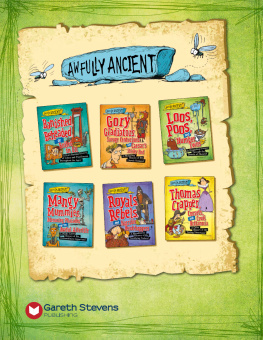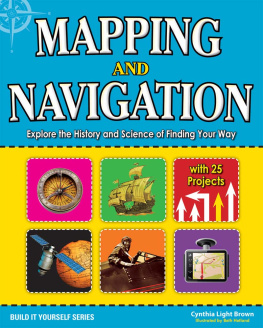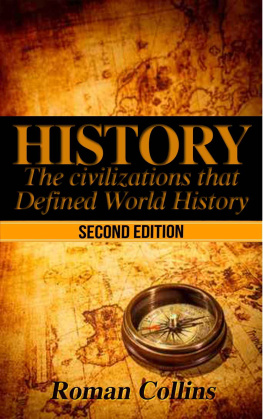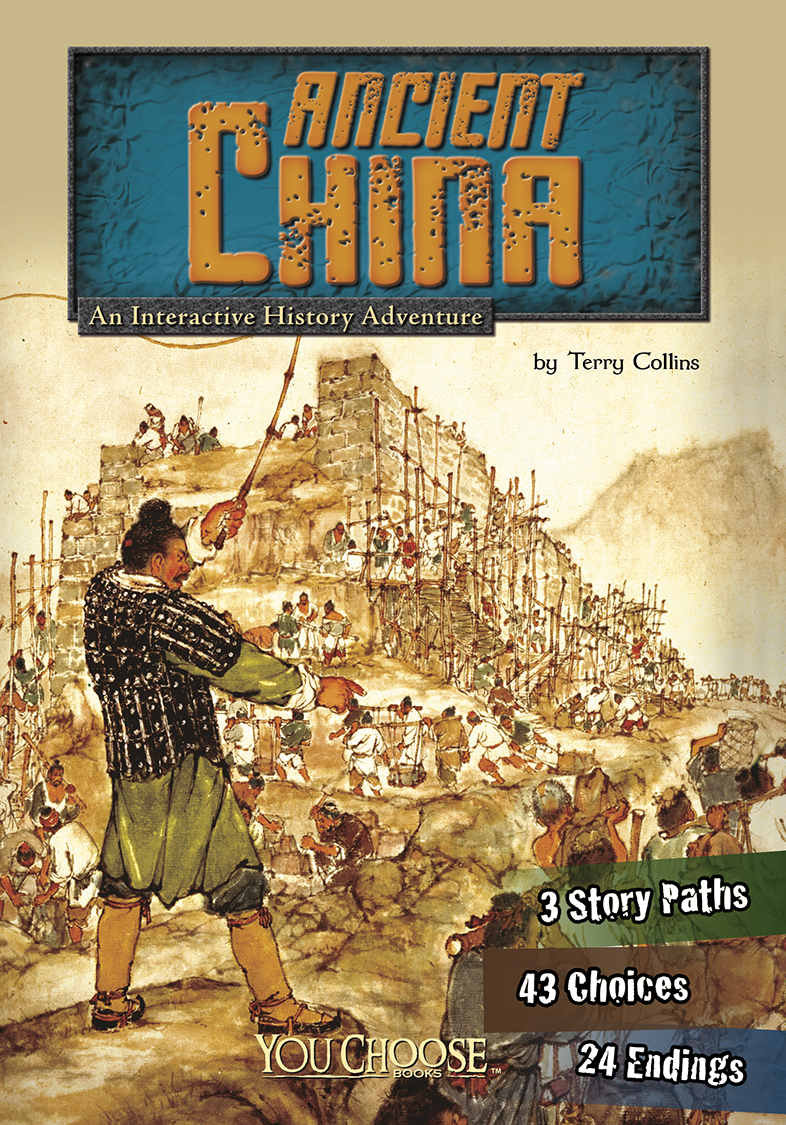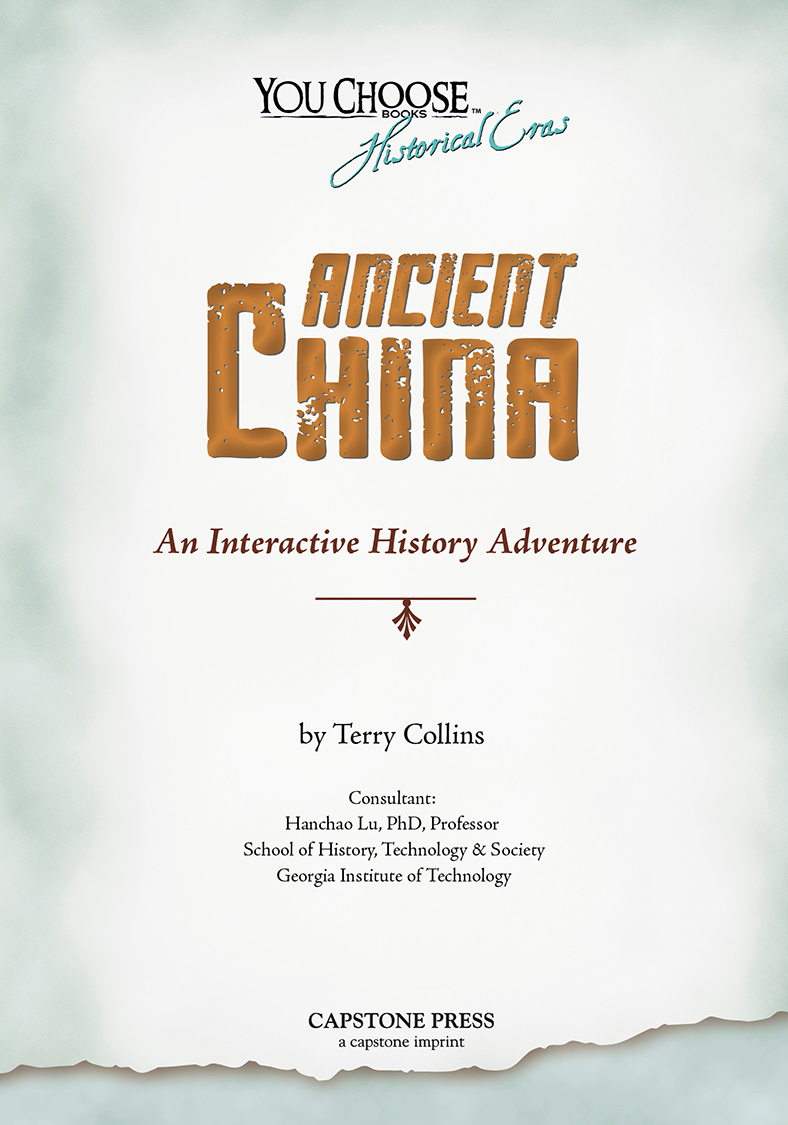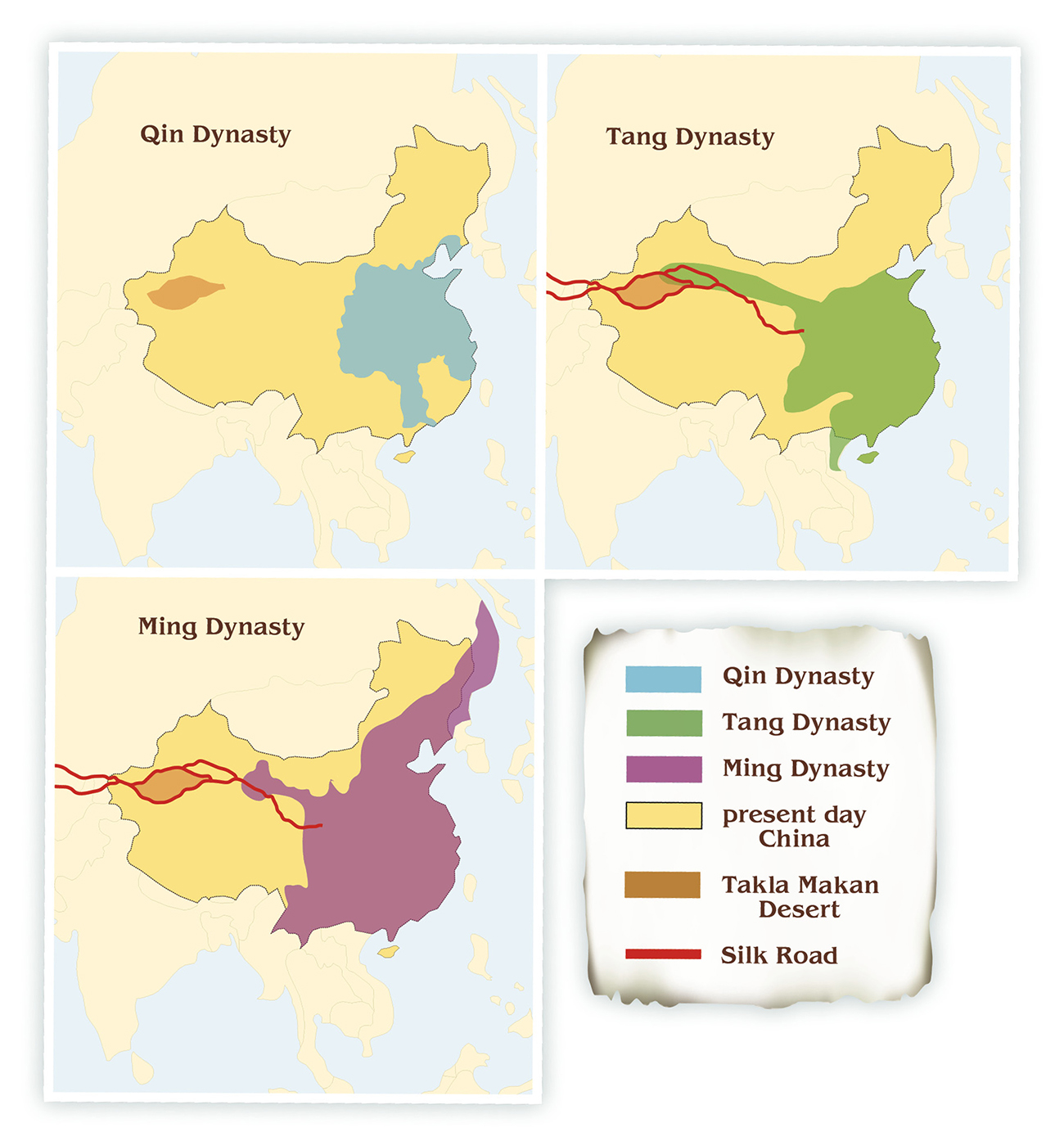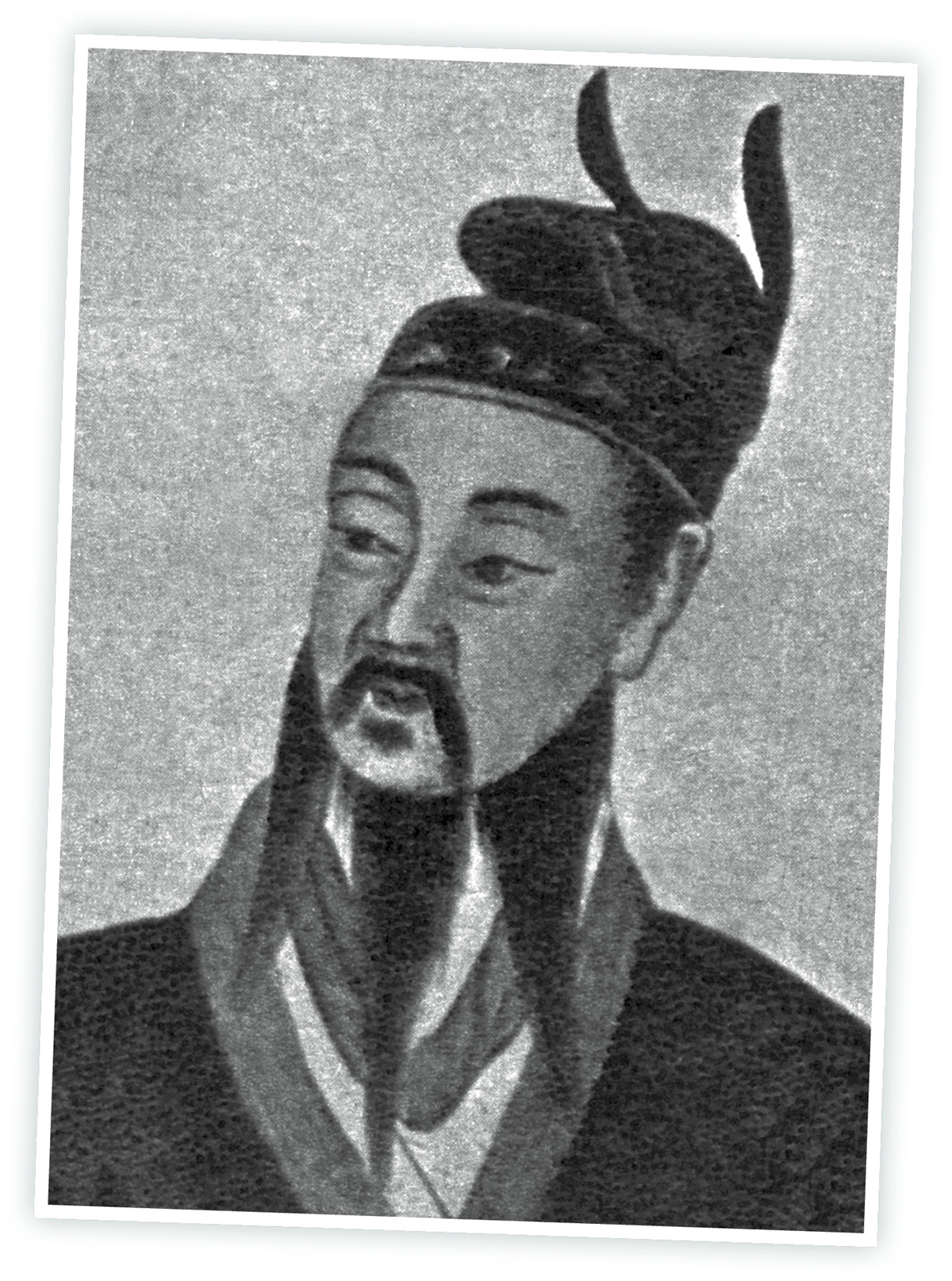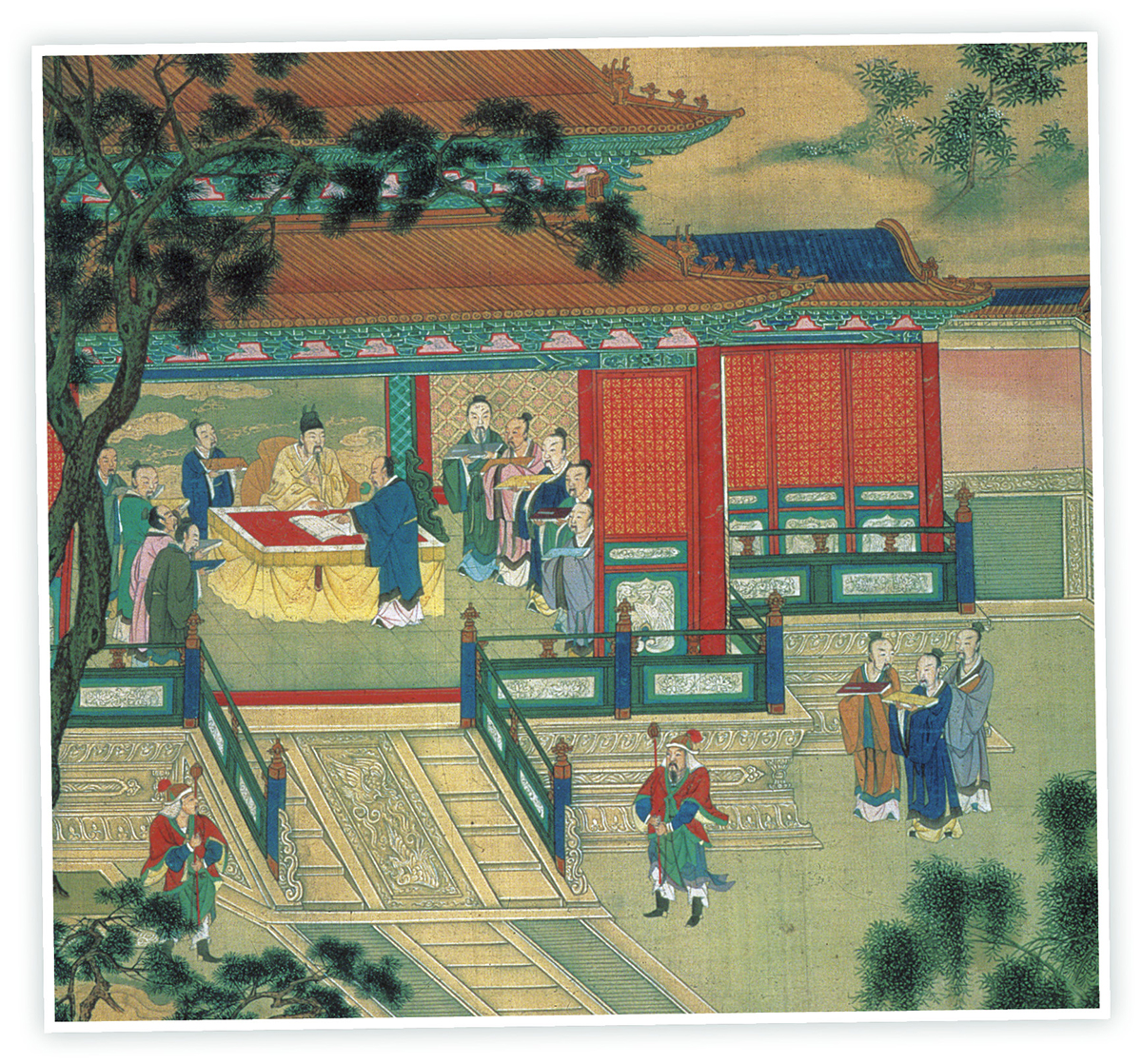For the best You Choose experience,
view in portrait (vertical) orientation.
ABOUT YOUR ADVENTURE
YOU are living in the vast country of ancient China. Its an exciting time of many new discoveries and inventions. Its also a time of many rules and laws, according to the emperor in power. Its not always easy to follow these laws. Will you be able to please the emperor?
In this book youll explore how the choices people made meant the difference between life and death. The events youll experience happened to real people.
Chapter One sets the scene. Then you choose which path to read. Follow the links at the bottom of each page as you read the stories. The decisions you make will change your outcome. After you finish one path, go back and read the others for new perspectives and more adventures. Use your device's back buttons or page navigation to jump back to your last choice.
YOU CHOOSE the path you take through history.
CHAPTER 1
Ancient Leaders, Ancient Dynasties
China is home to one of the oldest civilizations in the world. Its culture is a rich one, filled with .
The time period known as ancient China began about 4000 years ago. Much of this time in Chinas history was ruled by dynasties. A is a ruling family and the period of time they are in power. Some dynasties lasted for hundreds of years, while others lasted fewer than 20 years. Each dynasty had unique qualities. Each ruler brought in new ideas and customs.
Historians believe the first dynasty, the Xia Dynasty, began as far back as 2000 BC. Early dynasties such as Xia were led by kings or rulers.
Around 200 BC the Qin Dynasty brought the first emperor to powerQin Shi Huangdi. He oversaw the joining of China from seven major states into one mighty country. He built roads and canals, issued the same kind of money for all, and demanded that one written language be used.
But Qin Shi Huangdi could be cruel. He came up with a set of strict laws. Later dynasties changed some of them, but one concept remained the same. Ancient Chinese people believed the emperor was sent from heaven to rule. To defy the emperor could mean punishment, imprisonment, or death.
Qin Shi Huangdi called himself the first emperor of China.
Two philosophers developed ideas that shaped the way ancient Chinese people lived. Around 600 BC Laozi founded the philosophy of Taoism. Taoism said that people should live in harmony with the universe. They should also work with nature for an easy life.
Soon after Laozi came another philosopher known as Confucius. He believed if people respected and followed the teachings of their elders and superiors, all would be good. The teachings of Confucius were not appreciated in his lifetime. But after his death, his ideas helped form a basis for Chinese government for thousands of years.
During the dynasties rule, society became more structured. The intellectual class could read and write. They helped govern all of China under the emperor. Many of these men became public servants, working as judges and tax collectors after passing a test. Women were rarely allowed to work as public servants. Their education was generally limited to homemaking skills.
Peasants were below the intellectual class in the social order. Land was taken from rich noblemen and shared among the peasants to farm. Peasants grew food for the army and the people who lived in cities. Peasants were very poor, but also important to Chinas well being.
Next were the artisans. These skilled workers made weapons, pottery, tools, and other useful items. Many artisans passed on their skills to their children, creating long family lines of creative and skilled craftsmen.
The merchants were the lowest rung on the social ladder. Since merchants only bought and sold goods, society viewed them as unworthy. Despite their social standing, merchants often were the wealthiest people in China.
Apart from all of these classes was the professional soldier. To be a part of Chinas army was not a great honor. Common infantrymen were considered an even lower class than the merchants. Some generals became career military men. But most army members were drafted, or called upon to serve, for two years.
There is no single date considered to be the end of the ancient Chinese era. But many historians believe it ended in 1911 with the fall of the last dynasty, the Qing Dynasty.
Today China is a blend of ideas and customs from many dynasties. China has become one of the most powerful nations in the world. Knowing its past is necessary to understanding this unique country.
CHAPTER 2
Scholar or Soldier?
The year is 213 BC, during the time of the Qin Dynasty. Emperor Qin Shi Huangdis vision of a country united under a single ruler has come true. Thanks to the strength of his army, the seven major kingdoms of China are now joined as one.
You are the 16-year-old son of one of the emperors most trusted generals, Qi Kong. You are well trained by your father in the military arts He hopes that you will follow him into the military. You are also well educated. Your love of books and history sometimes puts you at odds with your father. He is concerned about your thirst for knowledge.
Emperor Qin restricted the study of books.
Acting on the advice of Li Si, his chief adviser, the emperor has many books. One banned book, the Analects, collects the lessons of Confucius as written by his students. Confucius said that a ruler had to respect his subjects, just as his subjects must respect him.
Confucius teachings differ greatly from the emperors ideas. The emperor believes in a system called legalism, which requires strict discipline and laws. Under legalism, an emperors word is law. Failure to destroy forbidden books brings great punishment, including death.
A lighter punishment might be forced labor on the building of the Great Wall. This wall was Emperor Qins attempt to protect the northern border of China from invading armies. It would eventually stretch more than 5,000 miles.
You find yourself torn between the way of the warrior and the path of the scholar. While you believe your father to be a great man, you wonder if the life of a soldier is for you.
Early one morning you awaken to find Qi Kong standing by your bedside in his uniform. Hes covered in tough body armor. His hat looks like a bird. It symbolizes his bravery and skill.
My son, our most wise and gracious emperor has asked me to inspect the building of the Great Wall to the north. Would you like to go with me?


